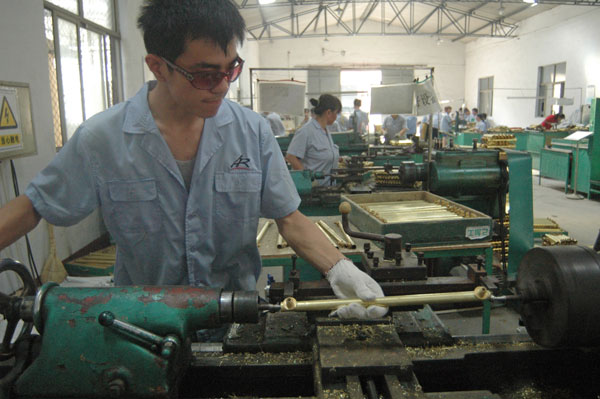All countries need structural reforms
Updated: 2015-08-14 08:55
By Zhu Qiwen(China Daily Europe)
|
|||||||||||
China doing its bit to help keep world economy afloat, but others should do so, too
Policymakers may breathe freely again after the passing of the roller-coaster month of July, when the Greek debt crisis and the Chinese stock market plunge almost spun out of control. But since economic headwinds remain strong, owing to worse-than-expected global growth and world trade this year, how worried should the world be about China's slowdown?
Given the huge contribution China's double-digit economic growth has made to global growth over the past decades, the international community should certainly keep its fingers crossed until the world's second-largest economy bottoms out to add momentum to global recovery. In particular, countries reliant on China's import of raw materials, machinery and equipment should be worried.
True, China's economic slowdown has made it difficult to stop the slide in commodity prices in recent years and reduced the exports of some countries' manufacturers. But it is gross exaggeration, as some Western media outlets have done, to blame China not only for the economic sufferings of export-dependent developing countries but also for the woes of European countries that excel in producing capital and luxury goods.

On the one hand, such critics have ostensibly failed to grasp the dire consequences that too much liquidity in the global financial market can cause. Recently, the International Monetary Fund warned of "significant and abrupt rebalancing of international portfolios" should the US Federal Reserve raise rates that have been kept too low for too long. The simultaneous fluctuations in the US dollar's strength and crises in emerging markets is a warning no policymaker can afford to ignore.
On the other, pointing the finger at China undermines the urgency of countries to make efforts to press ahead with structural reforms to boost economic growth both at home and abroad.
In this regard, Chinese policymakers' endeavors to deepen economic reforms may be as important as the country's economic growth to the global efforts needed to boost the world economy, which, the IMF has predicted, will grow by only 3.3 percent this year, the slowest pace since the 2008 global financial crisis.
China's economic slowdown is indeed broad and deep after several years of gradual deceleration. After last year's 7.4 percent growth, the weakest since 1990, the Chinese economy has slowed further this year, growing by 7 percent in the first half.
On Aug 3, a Caixin report said China's manufacturing activity fell to a two-year low in July, sparking fears that this could be a sign of a sharper downturn. The pressure on the Chinese economy is obvious. So is the resolution of Chinese policymakers who are fighting economic slowdown with both emergency measures and long-term reforms.
On Aug 4, the National Development and Reform Commission, China's top economic planning body, issued a plan to improve the core competence of six manufacturing sectors from 2015 to 2017, by attracting private investment, increasing financial support and encouraging acquisitions and mergers of foreign high-tech manufacturing enterprises.
Since manufacturing output accounted for more than one-third of China's $10 trillion GDP, there is little doubt that the NDRC move will expedite the country's economic growth.
On Aug 5, Bloomberg News reported that China is aiming to issue 1 trillion yuan ($164 billion) worth of bonds to fund construction projects in order to help boost the slowing economy. If that is true, Chinese policymakers are doing what is necessary to keep the economy on track.
Besides, some recent reports have said Chinese authorities are deliberating the 13th Five-Year Plan (2016-20), which would address the short-term downward pressure and facilitate sustainable development in the middle and long term.
Clearly, China is doing its bit to boost growth through structural reforms. Other countries can benefit a lot from China's success in leading its economy toward innovation and consumption-led growth. But for successful transformation of the economic development model, policymakers should aggressively change the economic structure to preempt another global financial crisis and seize the opportunity to facilitate another round of high global growth.
The author is a senior writer with China Daily. Contact the writer at zhuqiwen@chinadaily.com.cn
(China Daily European Weekly 08/14/2015 page13)
Today's Top News
Turkey's early elections 'decidedly possible': PM
Death toll rises to 50, military sends chemical specialists to blast site
12 firefighters among 44 killed in explosions
Chinese yuan extends fall Thursday
China rattles a few cages in the world's financial markets
Tibetan drivers to finally see the end of 'death road'
China becomes world's largest robots market for second consecutive year
Yuan may stumble, but will not fall
Hot Topics
Lunar probe , China growth forecasts, Emission rules get tougher, China seen through 'colored lens', International board,
Editor's Picks

|

|

|

|

|

|






